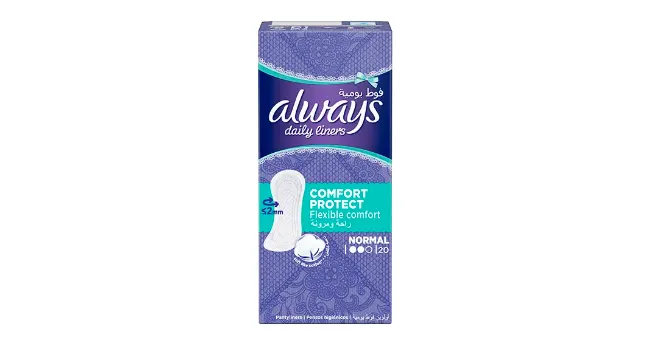Genital Warts in Women: Everything You Need to Know

Genital warts are a common and concerning health issue that affects many individuals worldwide. Despite their prevalence, there is often a lack of understanding about what they are, how they are caused, and the best ways to treat and prevent them. Understanding genital warts is crucial for early detection, effective treatment, and prevention. Genital warts, especially in females, is a sensitive topic that needs to be addressed as many may feel stigmatised or embarrassed about this condition.
What Are Genital Warts?
Genital warts are soft growths that appear on the genital areas. They are a type of sexually transmitted infection (STI) caused by certain strains of the human papillomavirus (HPV). These warts can develop on the vulva, vaginal walls, cervix, and around the anus in women. While genital warts in females are generally not life-threatening, they can cause significant discomfort and distress. HPV, the virus responsible for genital warts, is highly contagious and spreads through skin-to-skin contact during sexual activity.
Genital warts vary in size and appearance. They can be small, large, raised, flat, or clustered together to form a cauliflower-like shape. These warts are often flesh-coloured or slightly darker than the surrounding skin and may be smooth or slightly rough to the touch. Although genital warts themselves are usually painless, they can cause itching, burning, and irritation, especially when aggravated by clothing or friction.
Symptoms of Genital Warts
Recognising the symptoms of genital warts is essential for timely diagnosis and treatment. Here's an overview of what to look for1:
Small, flesh-coloured or gray swellings in the genital area
Several warts close together that take on a cauliflower-like shape
Itching or discomfort in the genital area
Bleeding while having an intercourse
Increased vaginal discharge with genital warts
Not all individuals with genital warts will experience noticeable symptoms, which can make the infection challenging to detect early. In case you experience an increase in vaginal discharge due to genital warts, make sure you manage them in a hygienic manner with good quality panty liners. Choose Always’ Comfort Protect panty liners which have an innovatively discreet design that is flexible and reliable. These are extremely comfortable for all day usage with its unique odour-neutralising technology that keeps you confident and secure all day.

Causes of Genital Warts
Genital warts are caused by certain strains of the human papillomavirus (HPV). There are more than 100 different types of HPV, but only a few are responsible for genital warts. HPV types 6 and 11 cause approximately 90% of all cases of genital warts. The virus is highly contagious and spreads through direct skin-to-skin contact during vaginal, anal or oral intercourse with an infected person.
It's important to note that HPV can be transmitted even when an infected person has no visible warts. The virus can remain dormant in the body, meaning that someone might not develop warts until weeks, months, or even years after becoming infected.

Treatment of Genital Warts
The treatment of genital warts effectively involves medical interventions and sometimes home remedies. While there is no cure for HPV, the virus causing genital warts, various treatments can help manage symptoms and remove visible warts.
Genital Wart Removal
When it comes to genital wart removal, several treatment options are available:
Topical Treatments: Prescription creams can be applied directly to the warts. These medicines for genital warts work by stimulating the immune system to fight the virus or by destroying wart tissue.
Cryotherapy: This involves freezing the warts with liquid nitrogen. Cryotherapy is a common, effective and one of the best treatment for genital wart removal, causing the warts to blister and eventually fall off.
Electrocautery: This method uses an electric current to burn off the warts. It is usually performed under local anesthesia and is an effective treatment for stubborn or recurrent warts.
Surgical Excision: In some cases, warts may need to be surgically removed. This is typically done for larger warts or those that do not respond to other treatments.
Laser Treatments: Laser therapy uses intense light to destroy warts. It is a precise and effective method for genital warts removal, often used for ones that are difficult to treat with other methods.
Home Remedies for Genital Warts
While medical treatments are often necessary, some individuals prefer to try home remedies for managing genital warts. It's important to note that home remedies should not replace professional medical advice, but they can be used as complementary treatments. Here are some commonly suggested home remedies for genital warts:
Apple Cider Vinegar: Similar to over-the-counter wart treatments, apple cider vinegar contains acetic acid, which can help destroy wart tissue. Soak a cotton ball in apple cider vinegar and apply it to the wart, securing it with a bandage overnight.
Tea Tree Oil: Known for its antiviral and antiseptic properties, tea tree oil can be applied directly to warts. However, it can be potent and may cause skin irritation, so it should be used with caution.
Garlic: Crushed garlic has antiviral properties and can be applied to warts to help reduce their size. Garlic can be mixed with a small amount of oil and applied to the affected area.
Vitamin C: Crushed vitamin C tablets mixed with water can create a paste that is applied to warts. The acidity of vitamin C may help in breaking down wart tissue.

Complications Due to Genital Warts
HWhile genital warts in women themselves are not life-threatening, they can lead to several complications if left untreated:
Persistent warts can cause itching, pain, and discomfort, especially during intercourse or when irritated by clothing.
The presence of genital warts can lead to significant emotional and psychological stress, affecting self-esteem and intimate relationships.
Certain high-risk strains of HPV are associated with an increased risk of cervical, anal, and other cancers. Regular screening and monitoring are essential for women with genital warts.
Prevention of Genital Warts
Preventing genital warts involves a combination of vaccination, safe practices while having intercourse, and regular medical check-ups. Here are some key prevention strategies:
Get vaccinated against HPV. The HPV vaccine protects against the most common strains of the virus that cause genital warts and cervical cancer.
Use protection while engaging in intercourse consistently and correctly to reduce the risk of HPV transmission.
Regularly attend medical check-ups and screenings, including Pap tests for women.
Takeaway
Genital warts are a common and manageable condition, but understanding their causes, symptoms, and treatment options is crucial for effective management and prevention. It's essential to consult a healthcare provider to determine the best treatment for genital warts, especially for women who may have specific health considerations. By staying informed and seeking appropriate medical care, individuals can reduce the impact of genital warts on their health and well-being.
Disclaimer:
Please note the date of the last review or update on all articles. No content on this site, regardless of date, should ever be used as a substitute for direct medical advice, diagnosis or treatment from your doctor or other qualified clinician. Always is committed to ensuring that all of our products meet rigorous safety standards; Always pads prioritize safety, protection and comfort of its consumers.




